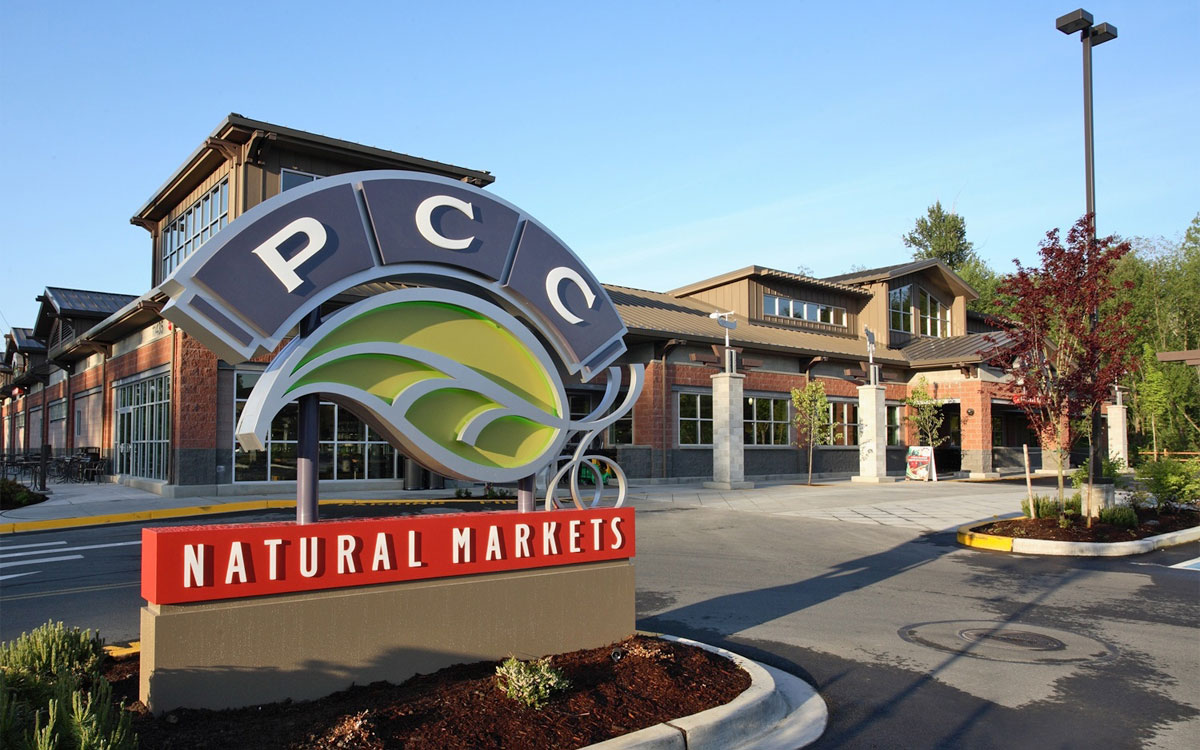There’s no elaborate formula that results in being selected “Best Grocery Store in Seattle.” According to Trudy Bialic, director of public affairs for PCC Natural Markets, the more than 30 accolades result from carefully listening to consumers and acting in their interest.
“We’re obligated to the consumers who own our business, not to manufacturers or venture backers,” Bialic says. “That allows us to be nimble about what who we are and what we sell.”
It’s also helped earn the Seattle-based 11-store chain the distinction of being the largest consumer-owned retail grocer in the United States, with 1,550 employees and more than 56,000 member households.
PCC originated as a food buying club for 15 families in 1953 and opened its first storefront as Puget Consumers Coop in 1967. Member-owned-and-operated, all the profits return to the business, shoppers and communities. Robust food bank and scrip programs, cooking and nutrition classes, advocacy and consumer education …the focus is on providing and celebrating high quality food, encouraging sustainable agriculture, and educating consumers about the impacts of their food choices.
95 percent of produce is organic
Keeping a close finger on the pulse of shoppers—and respecting their wants—PCC propelled creation of an organic egg and dairy market in Washington and was the first retail business partner with Monterey Bay Aquarium for a sustainable seafood program, while cementing a staunch commitment to certified organic and non-GMO products.
“We emphasize organic over local,” Bialic said. “Having both is ideal but transportation accounts for only 11 percent of greenhouse emissions associated with food for the average American household. Final delivery from producer to retail contributes only 4 percent — so ‘food miles’ alone are not as important to sustainability as how food is grown.”
A full 95 percent of PCC’s produce is organic, and all fresh meat and poultry is from animals with outdoor access, if not open range or pasture, and all but one brand in the meat department is Certified Organic or Non-GMO Project Verified. Sustainable and healthy seafood is the standard—no swordfish, mackerel or shark is sold at PCC because of high mercury or PCB levels. Even its canned and jarred fish meets Monterey Bay Aquarium standards for sustainability, and PCC standards to avoid human slavery in the fishing industry. The deli chefs create fresh dishes made with organic or mostly organic ingredients.
Committing to Non-GMO
For Bialic, joining PCC in 1992 epitomized the “personal” becoming the “professional:” she left a career in network news and television — Chicago, New York, Seattle — to plunge into something she cared about—sustainability and natural foods. From merchandising, member services, and marketing, she migrated to her current position where she has been instrumental in advocating strong certified organic standards and non-GMO policies. She also serves on the board of the Non-GMO Project (NGP).
“The commitment to avoid GMOs dates back to 1994, with introduction of the rGBH hormone—that prompted us to seek and create an organic milk market,” she said. “Since 2012, we’ve been methodically checking products for GMO at-risk ingredients. We don’t allow any new items with at-risk ingredients unless it’s organic or NGP Verified.”
PCC has committed to identifying GMO products in its stores by 2018 and its website offers a “Non-GMO Product List” referencing 3,685 items. Many suppliers have put their products through Non-GMO Project verification at the store’s suggestion.
Organic vs. Non-GMO?
PCC shopper preferences vary: some buy non-organic because of cost, some gravitate to non-GMO, and yet others are true-believer, organic buyers. Bialic hasn’t seen any data or evidence that non-GMO labels are negatively impacting organic sales.
“We’re not seeing that in our stores or the data,” she said. “Generally, non-organic, conventional foods upgrade to Non-GMO Project verified. We also do not hear shoppers confusing organic as equal to Non-GMO Project verified. What they do know is that organic isn’t testing for GMOs, and for some, that raises questions.
“The Project — and our requests that individual vendors go non-GMO — have helped push many products from conventional to Non-GMO Project Verified…. eliminating GMO cultivations and reducing GMO acreage. That is not only a good thing for organic farmers and the environment, it’s good for consumers. The NGP has said many times it would love to be made redundant and unnecessary, if the National Organic program would adopt NGP protocols for identifying GMOs. The real problem is that the organic industry leadership has failed to market organic effectively, so many consumers still don’t know what it means. Organic represents so much of what consumers want; non-GMO is one element.”
The goal of clean food
Bialic says the favorite part of her job is raising awareness—and speaking up on behalf of everyday shoppers and members.
The bigger challenge is being patient with how slow progress can be, locally and globally. “Progressive values always win out in the long run, and we have to believe this will be true for clean food and sustainable production, too. But it takes time and we have to keep putting one foot in front of the other, writing one more op-ed, having courage to participate in legal challenges, keeping the long-term vision before us. I’m very concerned about emerging technologies, such as synthetic biology and gene editing, that are completely unregulated and unlabeled … so the work is never over.”
In the meantime, PCC Natural Markets remains a beacon, a pioneer, a standard bearer, and a successful model for how to take consumers seriously and give them the highest quality, healthiest food possible.










